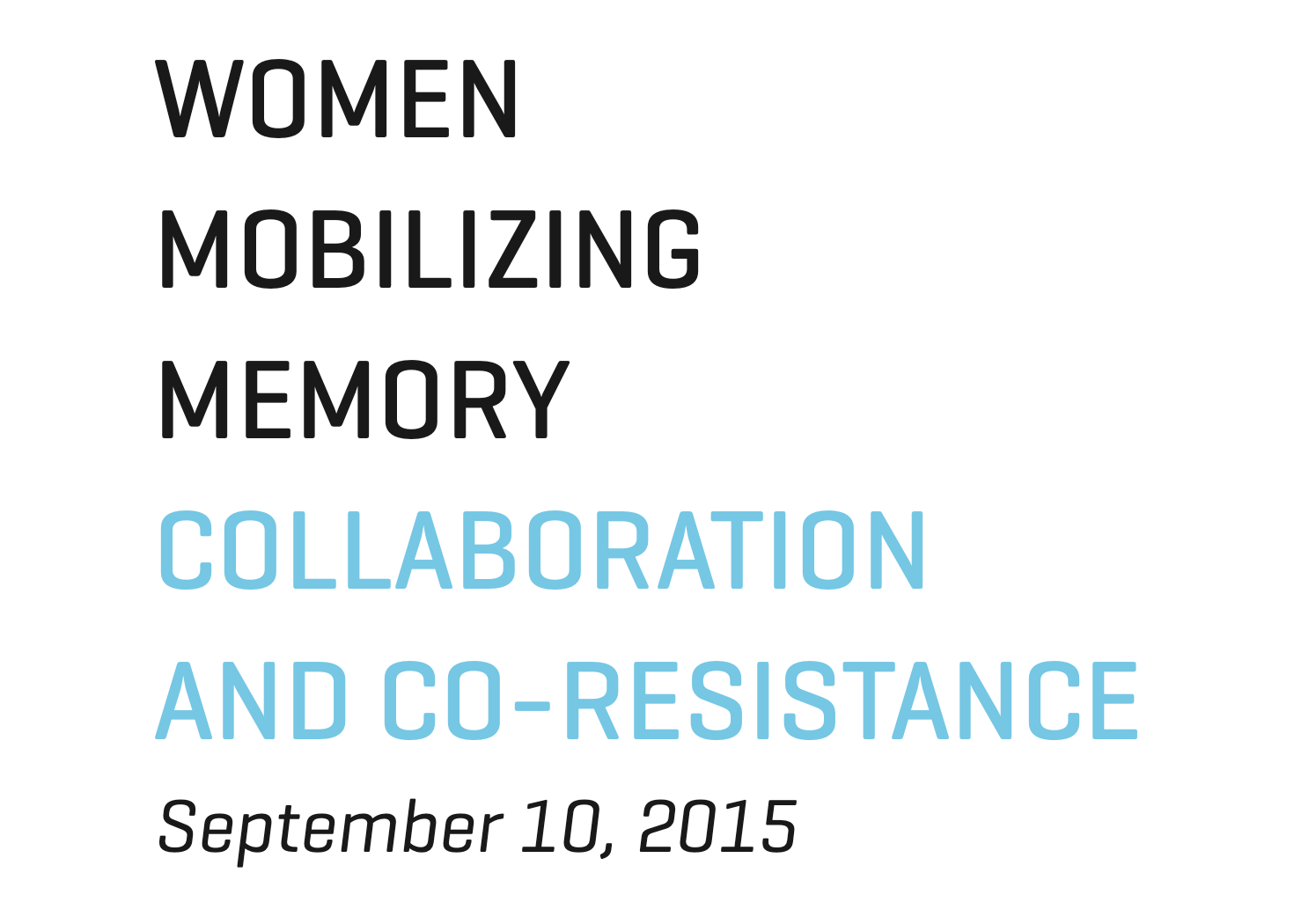Women Mobilizing Memory
Women Mobilizing Memory, a transnational exploration of the intersection of feminism, history, and memory, shows how the recollection of violent histories can generate possibilities for progressive futures. Questioning the politics of memory-making in relation to experiences of vulnerability and violence, this wide-ranging collection asks: How can memories of violence and its afterlives be mobilized for change? What strategies can disrupt and counter public forgetting? What role do the arts play in addressing the erasure of past violence from current memory and in creating new visions for future generations?
Women Mobilizing Memory emerges from a multiyear feminist collaboration bringing together an interdisciplinary group of scholars, artists, and activists from Chile, Turkey, and the United States. The essays in this book assemble and discuss a deep archive of works that activate memory across a variety of protest cultures, ranging from seemingly minor acts of defiance to broader resistance movements. The memory practices it highlights constitute acts of repair that demand justice but do not aim at restitution. They invite the creation of alternative histories that can reconfigure painful pasts and presents. Giving voice to silenced memories and reclaiming collective memories that have been misrepresented in official narratives, Women Mobilizing Memory offers an alternative to more monumental commemorative practices. It models a new direction for memory studies and testifies to a continuing hope for an alternative future.
Women Mobilizing Memory Book Events
The Women Mobilizing Memory working group presents Reclaiming Collective Memories in Contemporary Turkey, a panel discussion and book presentation.
CSSD working group Women Mobilizing Memory will be celebrating the recent publication of their eponymous book Women Mobilizing Memory with a reception and brief presentations from some of the book’s contributors.

Editors
Ayşe Gül Altınay is professor of cultural anthropology and director of the Gender and Women’s Studies Center of Excellence at Sabancı University.
María José Contreras is a performance artist and associate professor at the Faculty of the Arts of the Universidad Católica de Chile.
Marianne Hirsch is professor of English, comparative literature, and gender studies at Columbia University.
Jean Howard is professor in the Department of English and Comparative Literature at Columbia University.
Banu Karaca is assistant professor of anthropology and a Mercator-IPC Fellow at the Istanbul Policy Center.
Alisa Solomon is professor at Columbia University’s Graduate School of Journalism, where she directs the MA Arts and Culture concentration.
Project Directors: Marianne Hirsch, Jean Howard, Diana Taylor
Bringing together artists, writers, theater practitioners, museologists, legal scholars, social activists, and scholars of memory and memorialization, “Women Mobilizing Memory” focused on the political stakes and consequences of witnessing and testimony as responses to socially imposed vulnerability and historical trauma. It probed how individual and collective testimony and performance can establish new forms of cultural memory and facilitate social repair. Using gender as an analytic lens, this project explicitly explored women's acts of witness and the gendered forms and consequences of political repression and persecution. It asked what strategies of memorialization and re-imagining are most effective in calling attention to past and present wrongs and in creating possibilities of redress.
The group studied literary texts, visual images, memorials, archives of oral history and performances in the broadest sense, including acts of protest and the work of activist groups.
Hosted by the Columbia Global Centers in Latin America: Santiago and Istanbul, Turkey, it brought together feminist artists, scholars and activists from Columbia and the New York area with colleagues from Chile and Turkey.
News
Past Events
Publications
Women Mobilizing Memory Working Group
People








